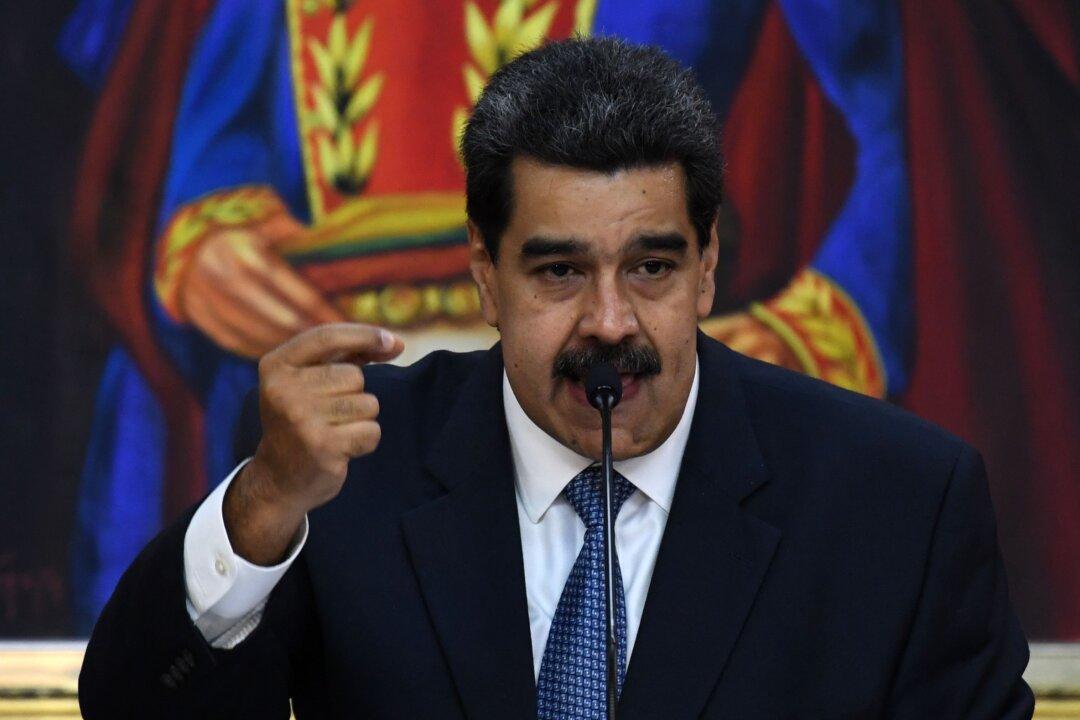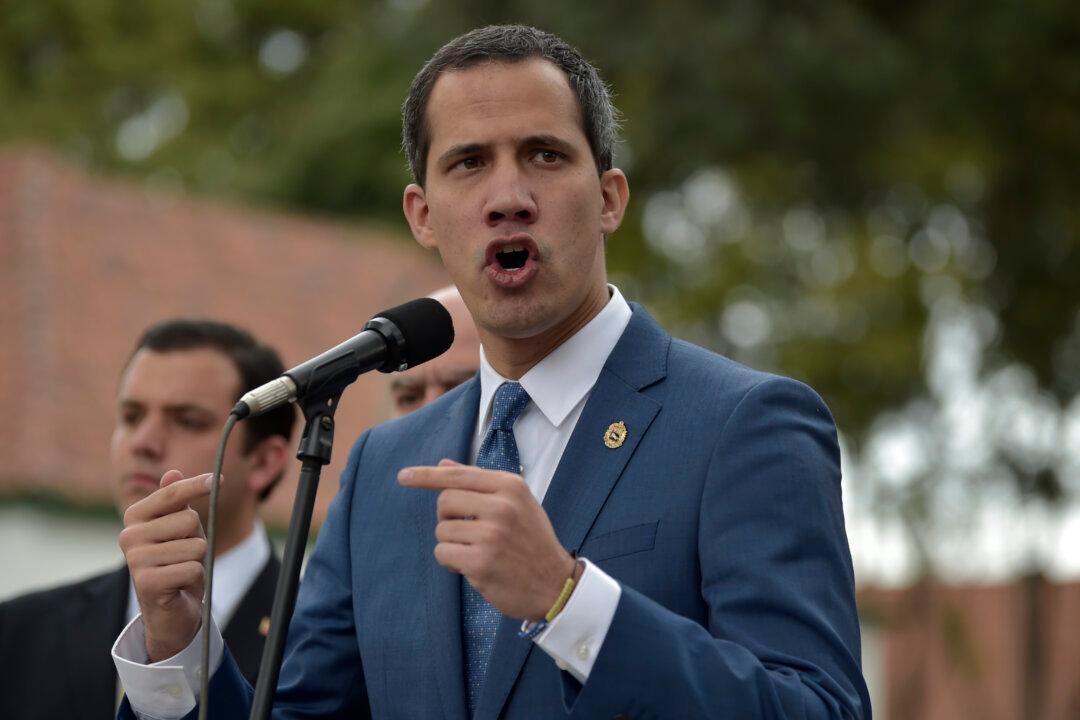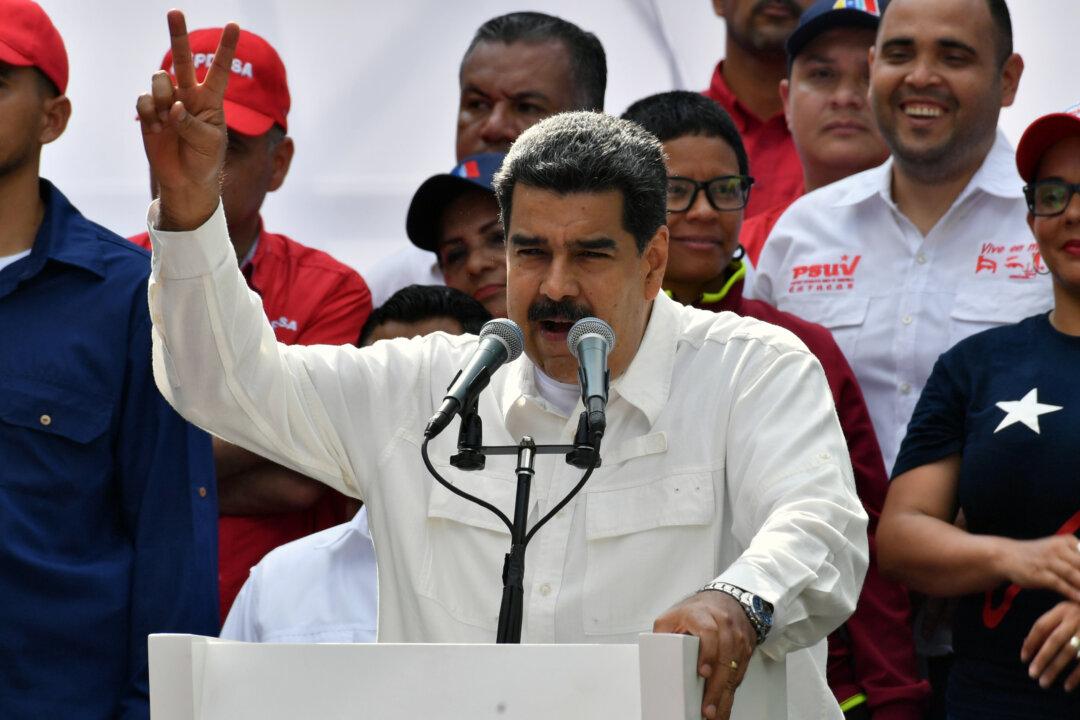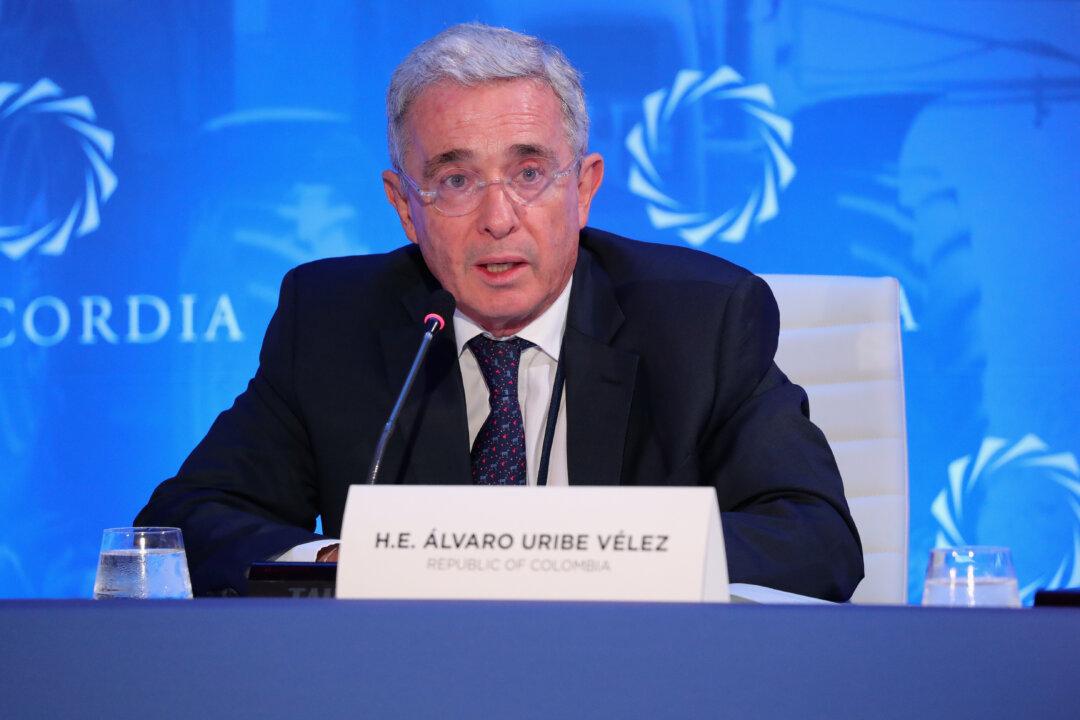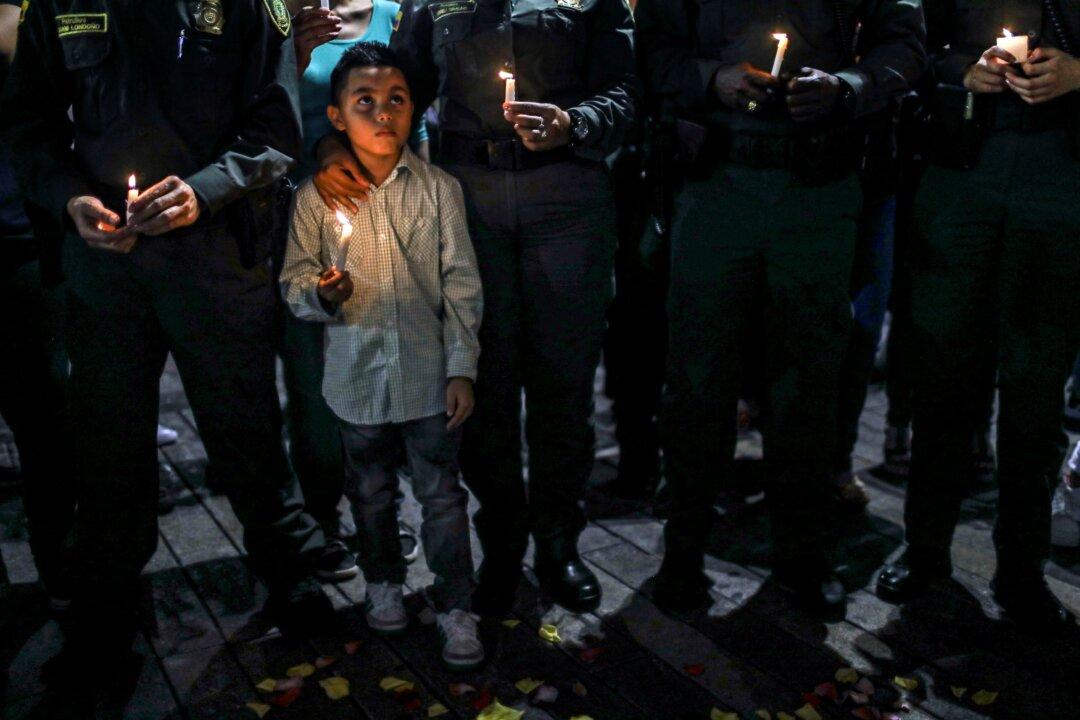BOGOTA, Colombia—The latest U.S. sanctions against the Maduro regime may cause some of Venezuela’s biggest trading partners to cease doing business with it, leaving that country financially isolated.
“If the Venezuelan economy has already slowed, it’s going to come to a grinding halt” should the sanctions be fully enforced, Sergio Guzman, of Colombia Risk Analysis, predicted.
